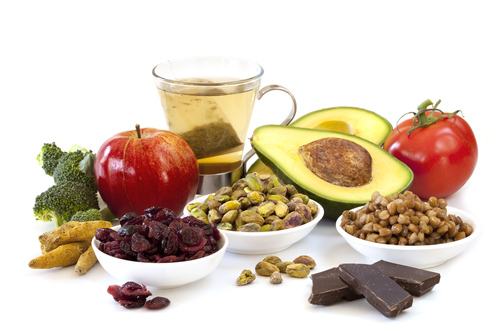Over the past few years we have been hearing how antioxidants are a powerful way to improve our health by eliminating destructive free radicals–a natural product of normal body physiology. As a result, Vitamin C, blueberry, and acai berry supplements are in all sorts of products at food stores. And we are better for it, right?
Well, the answer may be no. While antioxidants play an important role by stabilizing free radicals and prohibiting damage such as aging, heart failure, and Alzheimer’s disease, the question is whether these supplements are as effective as the antioxidants our bodies naturally produce. There are two reasons for this.
First, our goal should not just be to have a lot of antioxidants, but to have a variety of them, such as the kinds we get by eating fruits, vegetables, and dark chocolate. This is because it takes more than one type of antioxidant to limit the reactivity of a molecule formed when a free radical first combines with an antioxidant. A variety of antioxidants need to act together to produce the protective effect. Having only one type of antioxidant, like a large dose of a Vitamin C supplement, only creates molecules that are themselves unstable.
The second factor to consider is that our bodies naturally produce a diverse set of antioxidants when we exercise. These naturally produced, or endogenous, antioxidants are partially responsible for many of the health benefits associated with physical activity. However, high dose antioxidant supplements can cause our bodies to stop producing their own natural antioxidants, negating many of the positive affects of exercise.
According to researchers, the best advice for antioxidants is to eat a proper diet that contains a variety of fruits and vegetables, and we should only use supplements when there is a known deficiency.

